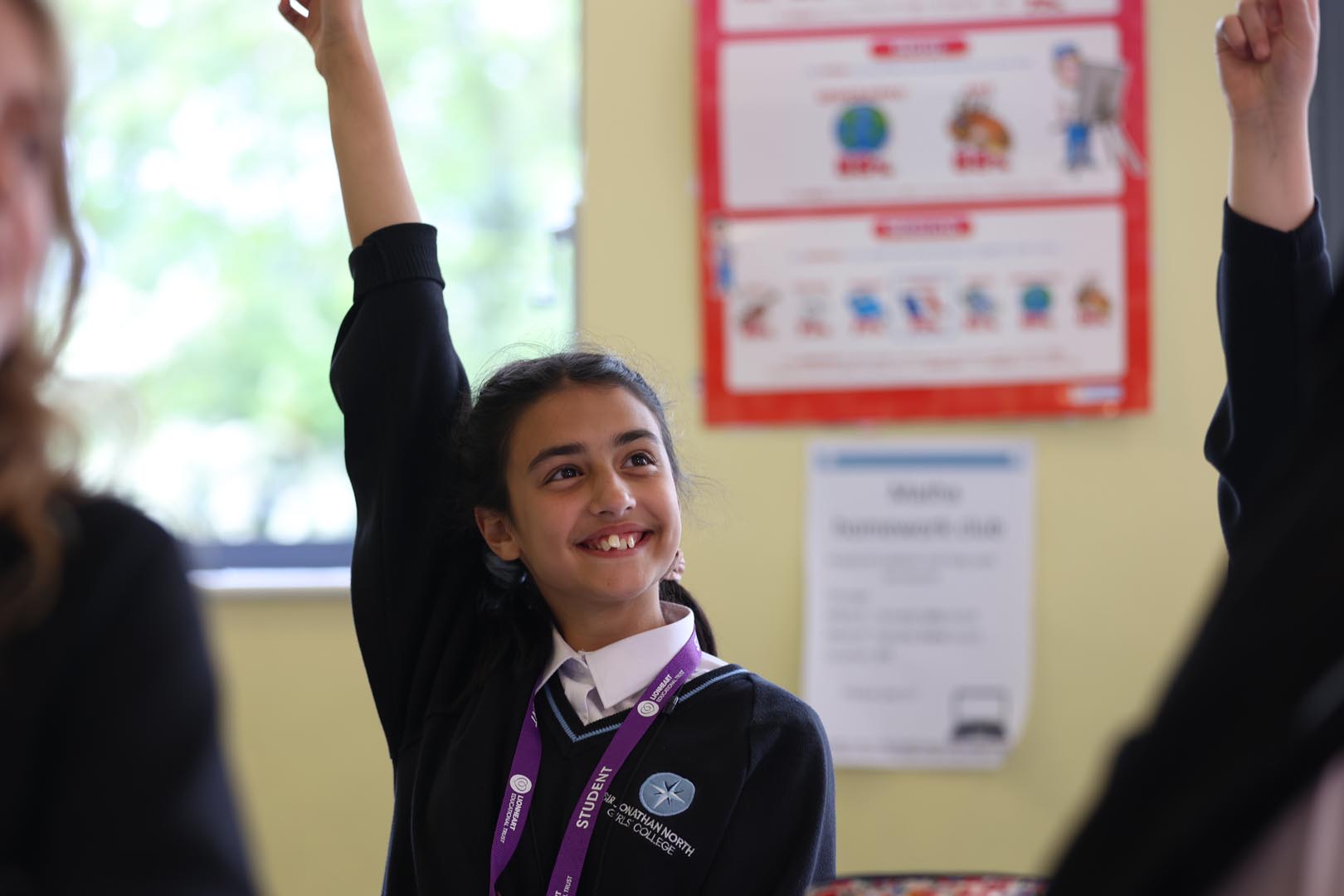
Religious Education
Sir Jonathan North Girls’ College believe that all students should be informed about religious belief and faith as part of their educational entitlement.Key Stage 3: Religious Education
“The principal aim of RE is to engage pupils in systematic enquiry into significant human questions which religion and worldviews address, so that they can develop the understanding and skills needed to appreciate and appraise varied responses to these questions, as well as develop responses of their own”. - Leicestershire Agreed Syllabus for Religious Education
Curriculum rationale:
At the Lionheart Education Trust (LET), we want our students to be the best that they can be. RS gives them opportunities to explore and respond to the meanings of experiences they encounter in relation to the study of beliefs of others, as well as reflecting on their own experiences.
We study a variety of issues over a 5-year curriculum. Students at LET will develop skills to evaluate and debate, discuss and analyse, question and discover, and to learn more about the world in which they live. What could be more exciting than this? RS empowers our students to make sense of their own place within a diverse multi-religious and multi-secular society and to develop values and attitudes which promote students’ spiritual, moral, social and cultural development. In addition, RS prepares all students for the opportunities, responsibilities and experiences of their present and future lives.
RE is a powerful tool in developing student’s critical thinking, debating skills and an important opportunity for students to sensitively explore difficult subjects, for example, abortion and euthanasia. This curriculum recognises the importance of the changing landscape of religion in the United Kingdom and across the world and the different challenges that this may present in society and the classroom. The whole purpose of the RE curriculum is to allow students the opportunity to understand why there are differences in belief, behaviour and attitudes and how this will encourage students to see the world from another perspective.
Curriculum Design:
Our teaching is responsive to the needs of our students, ensuring that students have secure knowledge and understanding of key concepts. In RS, we believe in equipping our students with the knowledge to confidently tackle philosophical and ethical questions. To do this we focus on teaching a knowledge-rich curriculum which develops students’ knowledge of key concepts found in religious traditions and develops their skills to carry out informed debates and analyse key issues. Our curriculum offers opportunities for students to develop and practise knowledge and understanding. This secures their learning, ensuring students can make connections between existing and new knowledge. We are developing our teaching to be underpinned by metacognitive behaviours, encouraging and facilitating all students to take ownership of their own learning and learn how to know about religion with respect and tolerance. This is done through modelling, metacognitive talk, appropriate challenge, effective use of vocabulary and feedback, questioning, independent practice and retrieval.
Our curriculum follows a cohesive timeline so the flow is logical and builds on prior knowledge in a coherent way. There is also a planned approach to the connections and links that can be made between subjects, particularly those within Humanities.
Curriculum Plan:
|
Topics |
Year 7 |
Year 8 |
Year 9 |
|
1 |
How did we get here? |
Core values and beliefs- Abrahamic religions |
Is religion good or bad? |
|
2 |
Should we care for the world? |
Core values and beliefs- Vedic religions |
Philosophy and ethics |
|
3 |
How should we treat one another? |
What are moral codes? |
Do we need religion? |
Curriculum Assessment:
Throughout curriculum RS at key stage 3 students are assessed every half term, which is reported to parents through the data snapshots.
At key stage 3, students are given both an effort grade, which reflects their attitude and approach to their lessons and out of classroom learning. They are also given attainment level is based on the ‘Beginning, Working Towards and Secure’ model and reflects the student’s attainment levels within the topics covered. Students are assessed against criteria relating to understanding a range of religious beliefs and practices, traditions and their influence on individuals, communities and societies as well as responding to a range of contentious issues.
Extra-curricular opportunities:
Students are given regular opportunities to speak to and meet visitors. Recent speakers have included a humanist, a Fairtrade farmer, students from Christian and Islamic Unions from Leicester University, a chaplain from Leicester Prison and a Holocaust Survivor. These experiences enrich student learning and understanding that religion is a living breathing relative organism and important in modern day society.

